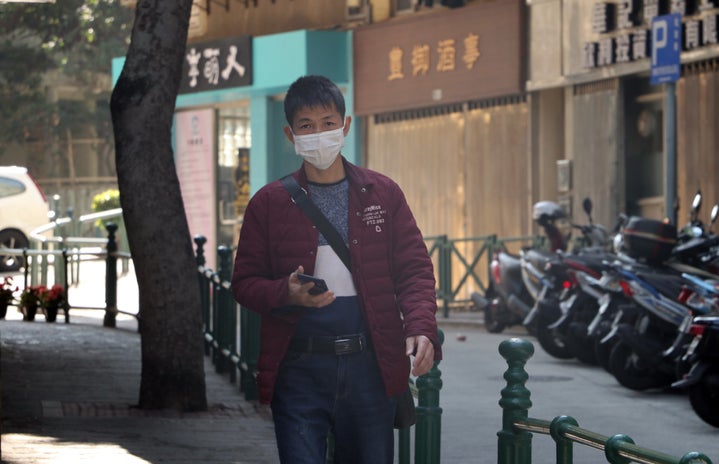I am a half-Chinese, half-white woman, and that’s something that will never change — but despite this fact, I’ve never felt like I’m actually Chinese, nor that I deserve to label myself as such.
When I lived in California as a kid, I’d occasionally visit my grandparents who came to America decades ago as first-generation Chinese immigrants. My younger sister and I would eat almond cakes and receive red letters on Lunar New Year. Sometimes, I’d get to hear my mom speak to her parents in my grandfather’s specific dialect. But when I turned 11, my family moved across the country to Maryland where none of my extended family lives — a move that essentially severed what few ties I had to my Chinese heritage.
I’m grateful that we moved here, and I think living in Maryland has greatly shaped parts of who I am today. But now more than ever, I’ve been catching myself wondering who I’d be if I’d made an effort to participate in Chinese culture and learn about my heritage. Unfortunately, those curiosities always took a back seat to other parts of my life, like deciding to pursue journalism, learning how to be a better writer and attending the University of Maryland.
Since coming to college, I’ve tried to begin that effort to reconnect with my heritage, even if it meant jampacking my schedule. I joined the Chinese Student Association on campus and attended an event hosted by the Asian American studies program. Even those little things, no matter how small, have helped me feel more like I’m a part of a community I never got exposed to.
After being indifferent towards my heritage for so long, I’m finally beginning to have a sense of pride in being of Chinese descent. That pride came to me right as the novel coronavirus began sweeping across the planet. In addition to a significant loss of life, the daunting task of self-isolation, the pandemic has also brought a new wave of prejudice to our front doors.
On Instagram, I saw a video of a white man chasing after an elderly Asian woman with a bottle of sanitizer, spraying it at her as she ran away. And in another instance, a girl posted about an event being postponed, punctuating the caption with a bitter “Thanks China.”

Every day, I see people point fingers at China and refuse to consider how other factors have helped spread the virus, such as people who actively don’t practice social distancing. I can’t help but get angry and want to fight back against this xenophobic scapegoating. This definitely isn’t a new phenomenon, either — it also happened to Haitians during the AIDS epidemic and Chinese-Canadians during the SARS pandemic, to name a few.
But even when I’m hearing and reading about this new wave of racism, there’s still a part of me that doesn’t want to feel upset— or gets upset from an outsider’s perspective rather than with the mindset that my community is being attacked. I don’t have a strong cultural connection to being Chinese, so why should I get mad when I’m so separate from the community?
On top of that, this kind of discrimination has never happened to me, and part of me thinks that’s because I pass for a white person. I never felt discriminated against before Maryland’s stay-at-home order, and I don’t think there’s a chance that’ll happen soon when I’m only seeing my immediate family. Even before the order, when I got a shiver of fear while going out in public, people didn’t give me a glare or any vitriol — “because I look white,” I’d think to myself. I should be angry as an ally, not acting like I could empathize.
It’s easy to tell myself these things because I’ve never felt “Chinese enough” in my entire life.
But I try to remind myself of the pride budding within me since coming to college where I got to connect with this other, more unfamiliar part of who I am. Unlike me, people there don’t see me as an invalid person of color — and just because this discrimination hasn’t happened to me doesn’t mean I shouldn’t make noise about it and try to create some solidarity in these turbulent times.
So even with my own imposter syndrome about my ethnicity, that sense of pride has helped push me forward in being comfortable speaking out as a person of color because this prejudice does affect my community, and I want to give myself the right to have a space in it.
I am a half-Chinese, half-white woman — and now more than ever is the time to stand up against these divisive attacks and unite as a nation in the fight against this pandemic.





